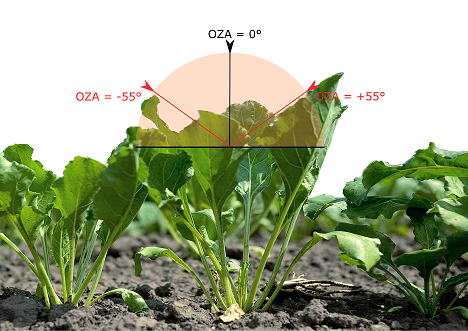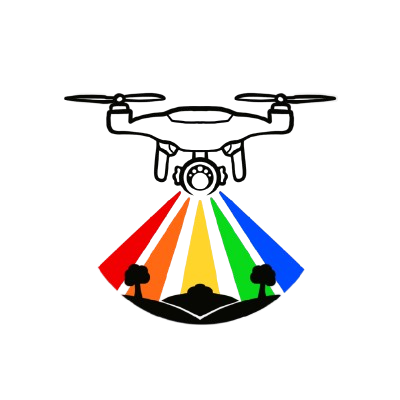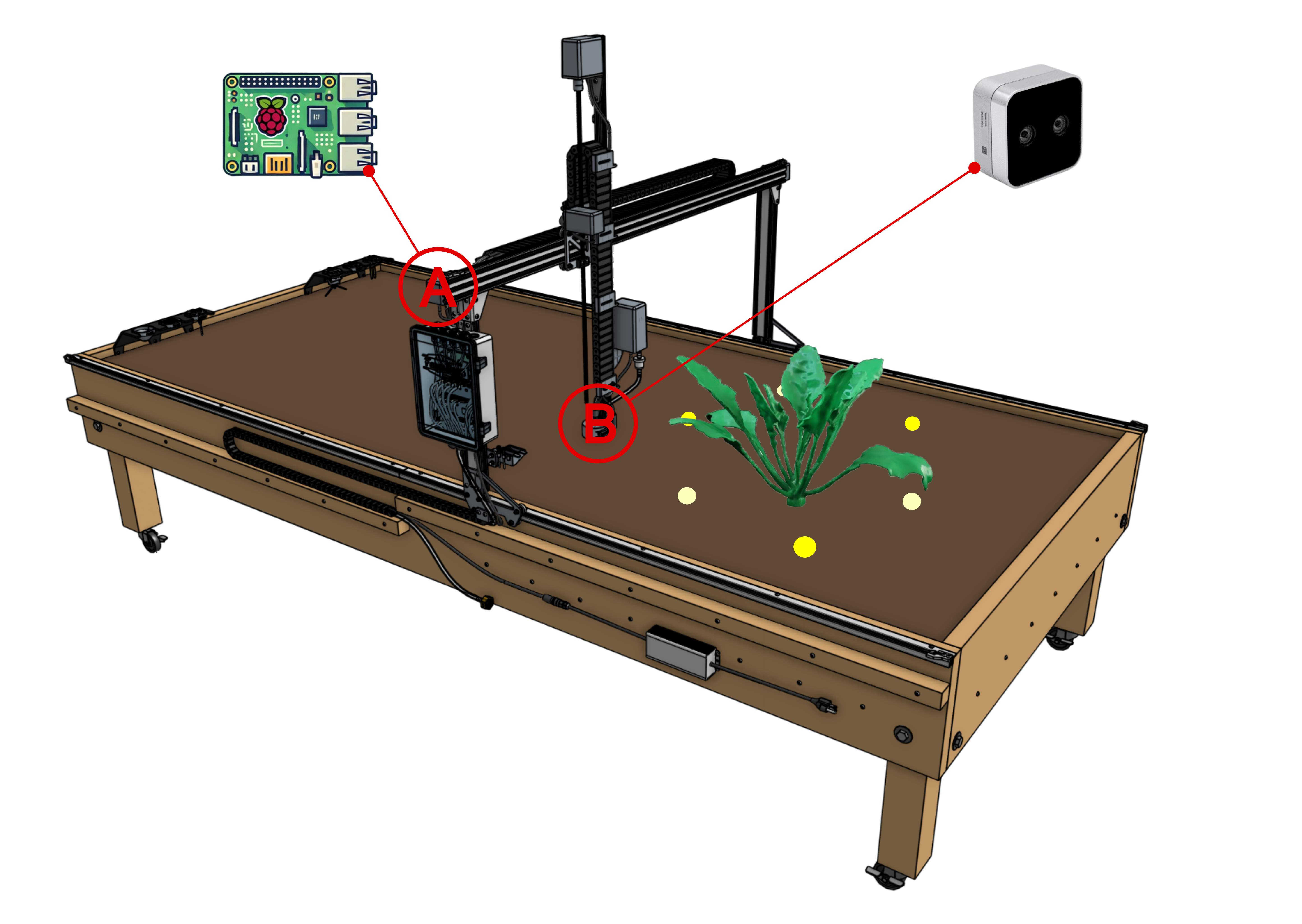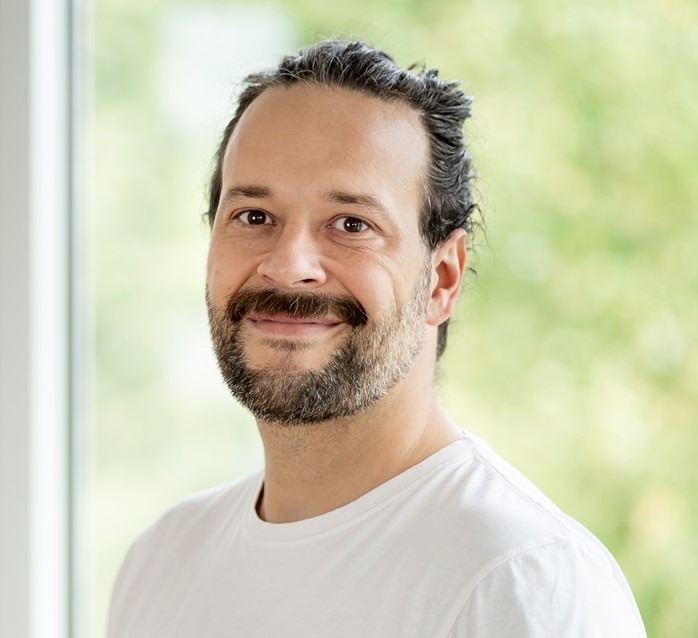Research
Projects
ON-Cerco (Active)
The standard view when using drones is looking straight down (nadir). Oblique viewing angles allow adding more information that can be used for plant disease incidence and severity estimates.


Remotely sensed leaf area index can improve mechanistic Cercospora beticola epidemiological models for disease predictions (Active)
Plant disease epidemiological models, empirical and mechanistic, assist with disease management decisions by providing a prediction of plant disease epidemics. Yet, adoption of predictive models in integrated crop protection can be low as available decision support systems require validation, in-field scouting by growers and agronomists and, from time to time, model parameter reviews. This project investigates, whether remote sensing technologies and automation strategies can assist in this process and ease adoption.

ReflectDetect (Completed, Published)
An innovative, fully automated command line software for in-flight radiometric calibration of UAV-mounted 2D snapshot multi-camera imagery. For more information please visit the
online repository.

High interval measurement of leaf angle dynamics using stereo vision (Completed, Published)
Leaf inclination angles (LIA) are crucial for regulating various processes within the plant carbon–water–energy nexus. In agriculture, these processes include photosynthesis, leaf temperature, plant growth, and the microclimate within the canopy. Despite its significance, LIA remains one of the most understudied plant functional traits due to the difficulty of measuring it accurately, particularly at short temporal intervals. In optical remote sensing, LIA is a key factor influencing spectral variability, which directly impacts the robustness of empirical models. Together with Frederik Hennecke, a data science student at the University of Göttingen, we developed a novel and automated approach to capture 3D point clouds of small crops (e.g., sugar beet), enabling precise determination of LIA from the generated data. Our system, controlled by publicly available code, and therefore adhering to FAIR principles and open software standards, allows for customizable capture intervals and positions. The method was validated using a 3D-printed sugar beet model with known LIA, demonstrating its potential for advancing plant trait studies.

The FarmBot Genesis v1.6 was upgraded with a Raspberry Pi (A) to control the position (e.g., yellow dots) and interval of image capture events of an Intel RealSense D405 (B) depth camera. The camera was mounted at the bottom of the z-axis extrusion, while the associated Raspberry Pi was mounted above the electronic box on the gantry of the FarmBot. The camera generated 3-dimensional point clouds that served as a source for LIA retrieval. The accuracy of LIA measurement was validated with a 3D-printed plant with known LIA´s.
Evaluating spot-spraying systems in sugar beet (Completed, Unpublished)
Across multiple field site in northern Germany, it is investigated whether spot spraying can contribute to herbicide savings in sugar beet cultivation.

agrIR - Developing R programming tools for crop water stress detection and energy balance modelling (Completed, Unpublished)
We are working alongside Rikard Graß (UFZ), Hannah Boedeker (UFZ), and Marco Hofmann (HS Geisenheim) to develop software tools aimed at enhancing thermography applications in agricultural datasets.

Supervision and Co-Supervision
M.Sc. Research (Active) - Deepl learning and deep resolution to detect shelter belts
Davide Mattioli is conducting his research on ADD TEXT HERE. Davide is enrolled in the M.Sc. program
Data Science at the Georg-August-Universität Göttingen.
B.Sc. Research (Active) - ADD TITLE HERE
Till Kage compares spectral vegetation indices, empirically related to nitrogen, across spaceborne (Sentinel 2 - L2A) and airborne (UAS + Parrot Sequoia) remote sensing data in winter wheat and winter rapeseed. Vegetation indices calculated from Sentinel 2 data will further be down-sampled by current super resolution algorithms and compared with the native resolution spaceborne and airborne data. Till is enrolled in the B.Sc. program
Applied Computer Science at the Georg-August-Universität Göttingen.
B.Sc. Research (Active) - GIS-based spatio-temporal analysis of the fire regime in the southwestern Alps in the period 2008-2024 with special consideration of topography and land use.
Pauline Hack is analyzing annual and seasonal wildfire activity over time and space using geospatial methods, exploring the influence of topography and land cover in Alpine regions. Pauline is enrolled in the B.Sc. program
Geography at the Georg-August-Universität Göttingen.
B.Sc. Research (Active) - Land-cover classification to track spatial dynamics on mangroves and satlmarshes in Australia
Daniel is conducting his research on the spatio-temporal dynamics of mangroves and saltmarshes in the Sydney metropolitan area. This involves vegetation classification using machine learning from vegetation surveys. The focus is on the direct and indirect influencing factors. The aim is to understand which of the factors contribute particularly strongly to changing dynamics and whether climate change influences contribute to stronger rates of change. The factors under investigation include above all direct climatic influences due to climate change, but also indirect anthropogenic influences due to urbanization. Daniel is enrolled in the B.Sc. program
Ecosystem Management at the Georg-August-Universität Göttingen.
M.Sc. Research (Active) - Investigating the influence of leaf angle dynamics on empirical plant disease modelling.
Marco Andres Paucar is conducting his research on diurnal sugar beet leaf dynamics and their impact on empirical classification models for structural and biochemcial plant traits. Andrés is enrolled in the M.Sc. program
Sustainable International Agriculture at the Georg-August-Universität Göttingen.
Visiting PhD Student Research (Alumni) - Investigating the influence of leaf angle dynamics on empirical plant disease modelling.
Giuseppe Quaratiello is conducting his research on diurnal sugar beet leaf dynamics and their impact on empirical classification models for structural and biochemcial plant traits. Giuseppe is enrolled at the University of Pisa in Italy and supervised by Lorenzo Cotrozzi.
M.Sc. Research (Alumni) - Digital technologies for Virus Yellows phenotyping in sugar beet across spatial scales.
Nathan Okole is investigating whether optical sensors at close-range and from uncrewed aerial systems (UAS) can be used for phenotyping Virus Yellows in sugar beet. Nathan is enrolled in the M.Sc. program
Crop Protection at the Georg-August-Universität Göttingen.
M.Sc. Research (Alumni) - Accuracy assessment for spot-spraying systems.
Teresa Starck assessed the precision and practicability of a spot-spraying system for use in maize and sugar beet crops. After her thesis, Teresa accepted a position at Xarvio - BASF Digital Farming GmbH.
B.Sc. Research (Alumni) - Can we predict the susceptibility to myrtle rust with the help of physical leaf traits?
Larissa Krey collected, and statistically associated, various - biologically relevant - plant functional traits to the pathosystem Austropuccinia psidii on Backhousia citridora.







